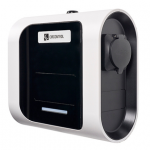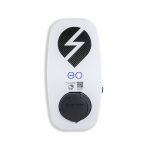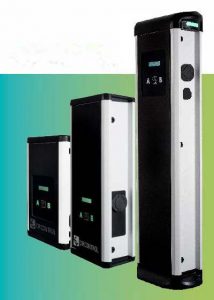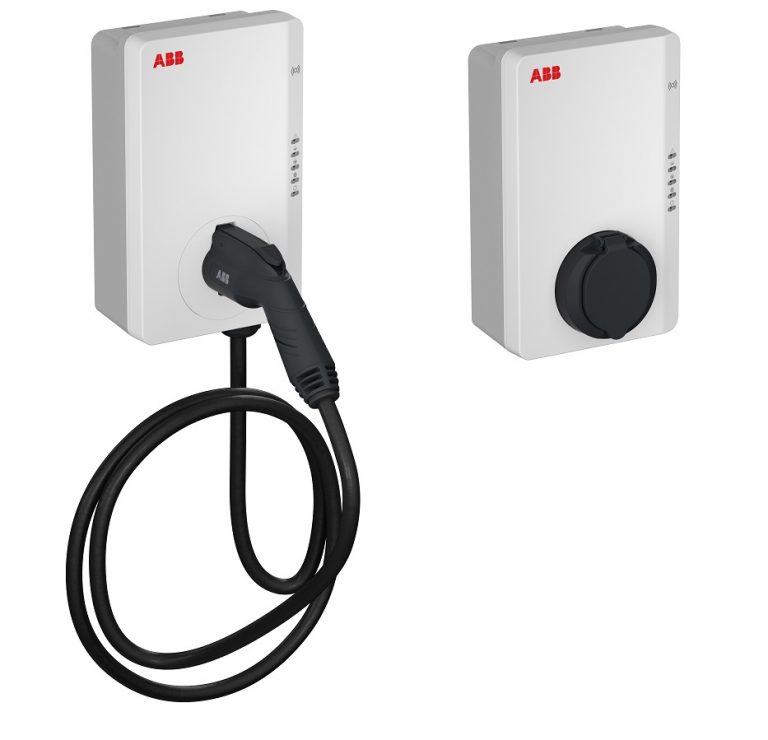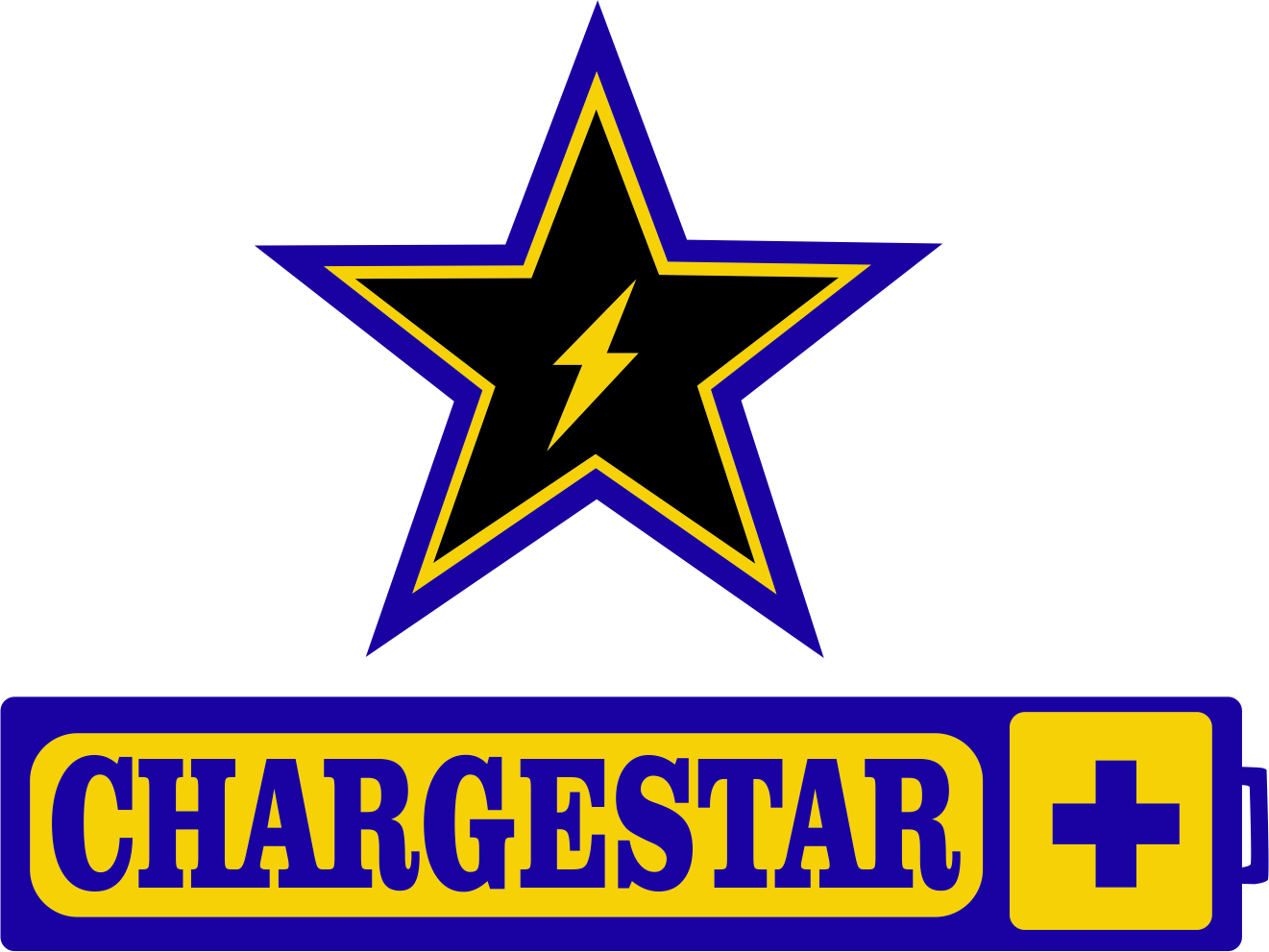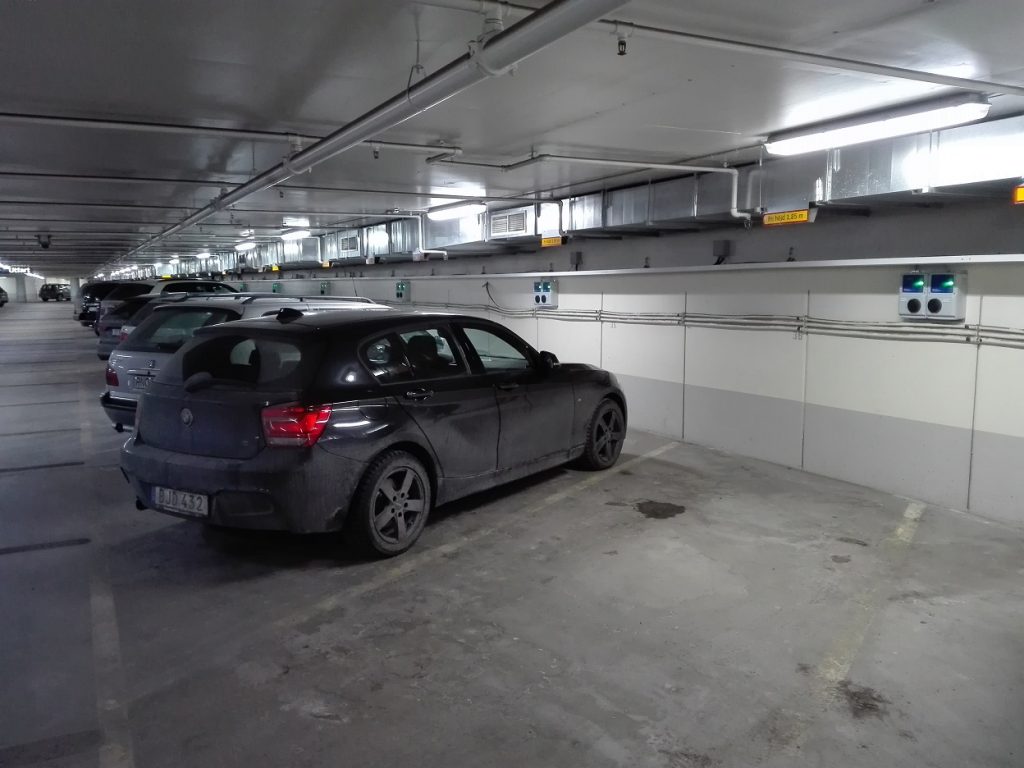Isabella bought a brand new apartment in the Central Park development and was delighted to find an electric vehicle charging station in her allocated parking space . Isabella bought a Renault Zoe which has a 40 kWh battery pack and a range of 300 km at Freeway speeds. Isabella drives around 50 km per day. The Zoe requires requires a top up of 10 kWh overnight except on the occasions when Isabella arrives back from a weekend in Margaret River with around 10 kWh left in the battery pack. On those nights the Zoe requires a charge of 30 kWh to fully recharge the battery pack. Isabella likes to have a fully charged battery pack in the mornings in case she has to make unexpected trips during the day.
Isabella’s charging station is rated to 7 kW. The Renault Zoe has an on-board AC charger rated to 22 kW which can charge the 40 kWh battery pack in around two hours. The Zoe communicates with Isabella’s charging station and detects that the station is rated to 7 kW. The car sets its charging rate accordingly and will fully charge from flat in around six hours. That’s fine because Isabella only drives around 50 km per day and the car charges over night.
The charging stations are connected to the THOR dynamic load balancing system which matches the amount of power the charging stations can draw with the spare power capacity of the building. The building normally has a spare capacity of 50 kW during the day and a 100 kW after 10pm at night. This was sufficient when Isabella moved in because she was the only occupant with an electric car and she was able to charge at 7 kW all the time.
However, now there are 40 electric cars in the parking area and all the EV chargers are in use after five pm. THOR dials down the available power for each station to 1.25 kW until 10pm at night. The occupants in the complex start going to bed after 10pm and the available power in the building increases from 50 kW to 100 kW. There is 2.5 kW of power available for each charging station from 10pm until 6am when the building occupants get up for work and the spare capacity in the building reduces to 50 kW.
Isabella is happy with the current arrangement because the Zoe can still get its 10 kWh overnight at a rate of 1.25 kWh per hour. But, Strata Management have informed the occupants that they intend to install another two hundred charging stations in the car park and that the overnight charging rate will be 0.42 kWh per hour when the 240 charging stations are operating concurrently. A car charging for eight hours between 10pm and 6:00am at 0.42 kWh per hour will draw 3.36 kWh. This is not enough to provide the Zoe with the 10 kWh it needs to fully recharge. Isabella realises that the battery in the Zoe will deplete during the week unless she gets a chance to charge somewhere else such as at the new DC fast charger which has just been installed at the servo across the road. However, Isabella would prefer to get a full charge overnight as the power in the complex is much cheaper than the $0.50 cents per kWh charged by the Servo. Strata Management have informed the owners that it will cost half a million dollars to upgrade the grid connection so that electric vehicles can fully charge overnight. The owners will have to weigh up the expense of a grid upgrade against the cost of charging at commercial DC fast charging stations.
